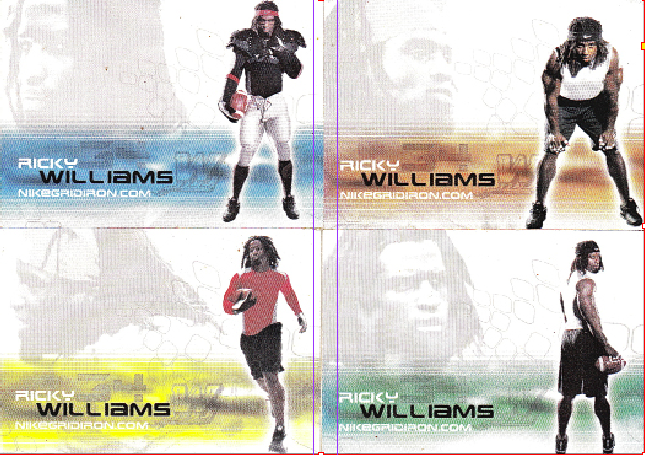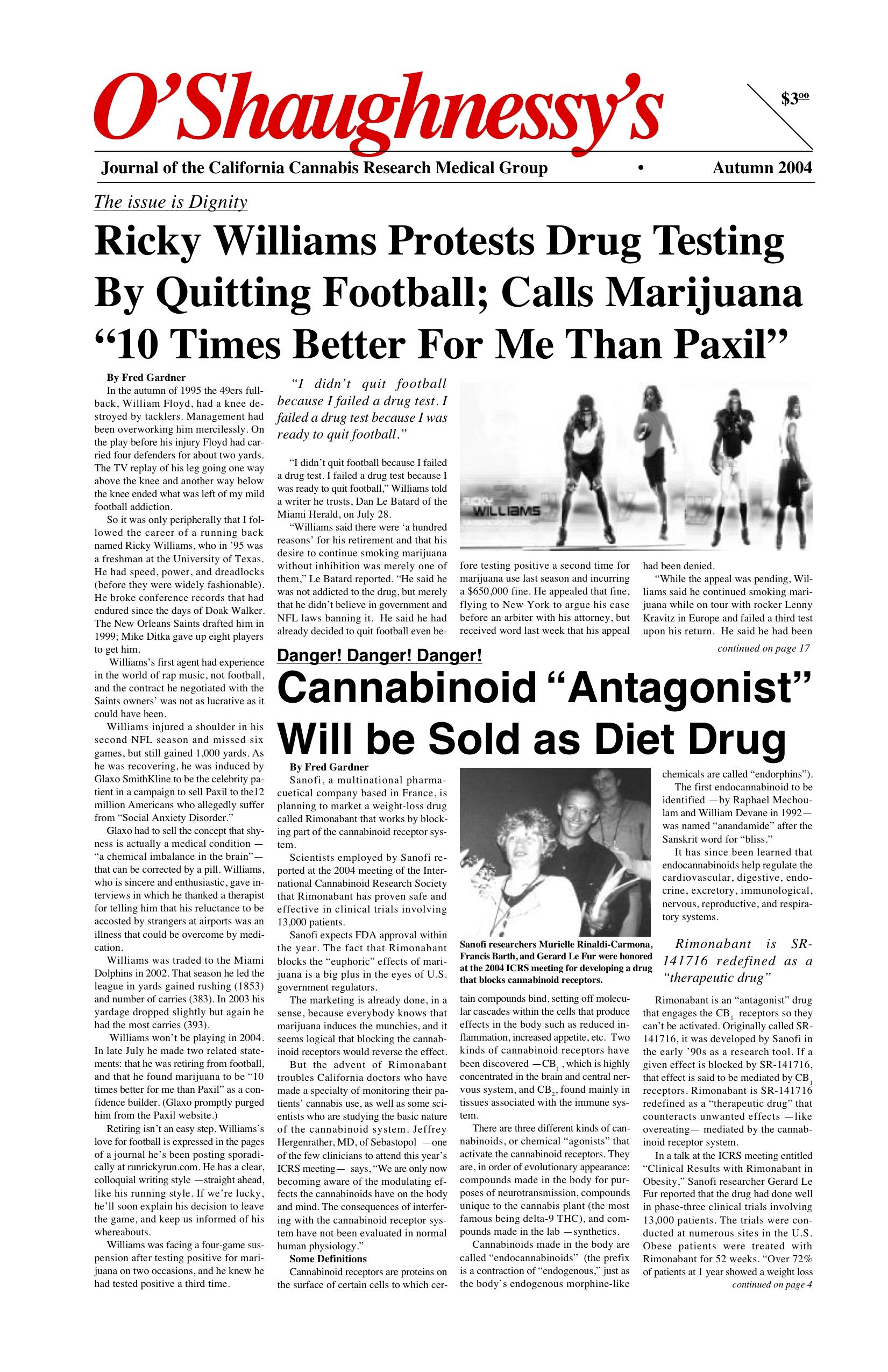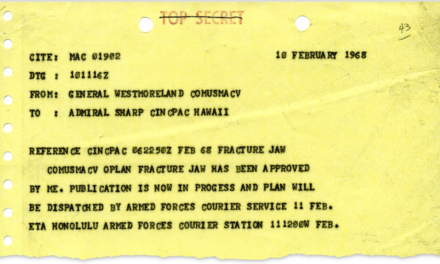Ricky Williams Protests Drug Testing By Quitting Football; Calls Marijuana “10 Times Better For Me Than Paxil”
By Fred Gardner (O’Shaughnessy’s, Autumn 2004)
In the autumn of 1995 the 49ers fullback, William Floyd, had a knee destroyed by tacklers. Management had been overworking him mercilessly. On the play before his injury Floyd had carried four defenders for about two yards. The TV replay of his leg going one way above the knee and another way below the knee ended what was left of my mild football addiction.
So it was only peripherally that I followed the career of a running back named Ricky Williams, who in ’95 was a freshman at the University of Texas. He had speed, power, and dreadlocks (before they were widely fashionable). He broke conference records that had endured since the days of Doak Walker. The New Orleans Saints drafted him in 1999; Mike Ditka gave up eight players to get him.
Williams’s first agent had experience in the world of rap music, not football, and the contract he negotiated with the Saints owners was not as lucrative as it could have been.
Williams injured a shoulder in his second NFL season and missed six games, but still gained 1,000 yards. As he was recovering, he was induced by Glaxo SmithKline to be the celebrity patient in a campaign to market Paxil to the 12 million Americans who allegedly suffer from “Social Anxiety Disorder.”
In order to sell Paxil, Glaxo had to sell the concept that shyness is actually a medical condition —“a chemical imbalance in the brain”— that can be corrected by a pill. Williams, who is sincere and enthusiastic, gave interviews in which he thanked a therapist for explaining that his reluctance to be accosted by strangers at airports was an illness that could be overcome by medication.
Williams was traded to the Miami Dolphins in 2002. That season he led the league in yards gained rushing (1853) and number of carries (383). In 2003 his yardage dropped slightly but again he had the most carries (393).
Williams won’t be playing in 2004. In late July he made two related statements: that he was retiring from football, and that he found marijuana to be “10 times better for me than Paxil” as a confidence builder. (Glaxo promptly purged him from the Paxil website.)
Retiring isn’t an easy step. Williams’s love for football is expressed in the pages of a journal he’s been posting sporadically at runrickyrun.com. He has a clear, colloquial writing style —straight ahead, like his running style. If we’re lucky, he’ll soon explain his decision to leave the game, and keep us informed of his whereabouts.
Williams was facing a four-game suspension after testing positive for marijuana on two occasions, and he knew he had tested positive a third time.
“I didn’t quit football because I failed a drug test. I failed a drug test because I was ready to quit football,” Williams told a writer he trusts, Dan Le Batard of the Miami Herald, on July 28.
“Williams said there were ‘a hundred reasons’ for his retirement and that his desire to continue smoking marijuana without inhibition was merely one of them,” Le Batard reported. “He said he was not addicted to the drug, but merely that he didn’t believe in government and NFL laws banning it. He said he had already decided to quit football even before testing positive a second time for marijuana use last season and incurring a $650,000 fine. He appealed that fine, flying to New York to argue his case before an arbiter with his attorney, but received word last week that his appeal had been denied.
“While the appeal was pending, Williams said he continued smoking marijuana while on tour with rocker Lenny Kravitz in Europe and failed a third test upon his return. He said he had been using a masking agent to cleanse his system while being randomly tested for two seasons, but said he didn’t even bother before the last such test after returning from Europe.”
“Williams failed his first drug test soon after arriving in Miami in 2002. He spent much of his two seasons with the Dolphins in the league’s drug program, seeing a therapist weekly and subjected to eight to 10 random urine tests a month at his home.
“Williams said he continued smoking throughout his time as a Dolphin, stopping only for a month here and there, but passed random tests by drinking 32 ounces of a masking agent called Extra Clean and chasing it quickly with 32 ounces of water…
“Williams, who suffers from social-anxiety disorder and was a spokesperson for the anti-depressant Paxil, said marijuana helped him once he had to stop using Paxil because it didn’t agree with his diet.
“‘Marijuana is 10 times better for me than Paxil,’ he said.
“Williams said he doesn’t see anything wrong with marijuana because it is ‘just a plant’ and his hero, Bob Marley, admitted to smoking it daily. Williams has Marley tattoos all over his body, named his first child Marley and is friends with Marley’s children.”
Financial Pressure Anticipated
The Associated Press reports that the Dolphins “will attempt to recoup about $4.7 million in bonus money that Williams has collected due to reaching rushing incentives in his new contract… Miami still believes there is a chance that Williams will reconsider and decide to play football, once he realizes he will have a financial fight on his hands and once real contact begins.”
The Dolphins had been using Williams as a “battering ram,” Steinberg said.
Williams’s current agent, Leigh Steinberg (the model for Jerry Maguire), who also thinks his client might change his mind, made some sensible comments on his behalf. The Dolphins had been using Williams as a “battering ram,” Steinberg said. “In so many of his carries he was running straight into the line. It took a heavy physical toll. Maybe it took an emotional toll… Running a football into the waiting arms of 300-pound defensive tackles whose goal is to fling one to the turf time after time requires an extraordinary degree of passion, and commitment, and he found it lacking.”
“All NFL players get hurt,” says veteran AP football reporter Dave Goldberg. “The beating you take is horrendous.” Goldberg calls Williams “a throwback to 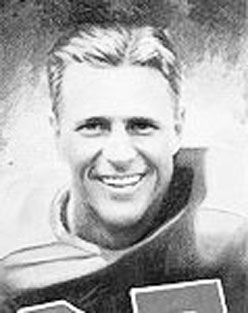 the ’60s, a free spirit, very bright. When he was at Texas he decided he wanted to get to know Doak Walker, the old SMU halfback, and they became friends. It was an interesting pairing… Ricky is really atypical. The professional football environment is —let’s not call it fascist, but it’s the military mindset, and the players buy into it.” Goldberg admired an NFL executive named George Young who decided to shock everybody at an owners’ meeting by announcing that he was a Democrat. When he heard about Williams’s retirement, Goldberg says, he recalled a comment by Young, who was the Giants’ general manager: “Never draft a guy who’s too smart.”
the ’60s, a free spirit, very bright. When he was at Texas he decided he wanted to get to know Doak Walker, the old SMU halfback, and they became friends. It was an interesting pairing… Ricky is really atypical. The professional football environment is —let’s not call it fascist, but it’s the military mindset, and the players buy into it.” Goldberg admired an NFL executive named George Young who decided to shock everybody at an owners’ meeting by announcing that he was a Democrat. When he heard about Williams’s retirement, Goldberg says, he recalled a comment by Young, who was the Giants’ general manager: “Never draft a guy who’s too smart.”
Attorney David Cornwell has been helping Steinberg represent Williams. A former assistant general counsel for the NFL, he sometimes sounds as if he was speaking for management: “My recollection is we began testing for marijuana sometime in the ’87-89 contract. The players association said it was not appropriate. We believed that not only was it appropriate under the law, it was necessary.”
Your correspondent opined that drug testing is an assault on a person’s dignity and that by refusing to put himself through it, Williams was doing what millions of Americans wish they could afford to do. Cornwell responded, “I think there is a place for it, if for no other reason than the stature that professional athletes enjoy.”
Cornwell expressed concern that the NFL program “tends to devolve into a process where they focus more on catching the guy than treating him —if, in fact, there is a substance abuse problem or some other underlying issue. When it comes to education and treatment, there’s a substantial breakdown.”
Cornwell acknowledged that NFL team owners use the drug-testing policy to reduce players’ earning power. “There have been players that I represented who have had multiple violations of league-sponsored substance abuse policy and were facing some level of suspension. That certainly had a chilling effect on their marketability —finding teams to sign them, and then once a team is willing to sign them, the structure of the contract. Because the next violation could result in either another suspension, a ban, or something in between. As a result, teams are reluctant to put in up-front money or guaranteed money into a deal if they might lose the guy.”
From Ricky Williams’ Journal
• “My shoulder was extremely sore after this week’s game, and it’s always going to be [written Sept. 11, 2002]. The trainers told me that it’s basically going to flare up every time I get hit on it directly because I’ve got so much junk in my shoulders from the wear and tear of football. I’ve gotten what seems like hundreds of X-rays, and it’s amazing to see how much stuff is in my joints. I’ve separated both my shoulders before, and I’m going to keep getting hit there because of how hard I run. It’s kind of unavoidable. I can get my shoulder scoped after the season, but I’m not doing anything right now except working really hard to strengthen and protect it. I can’t let anything take me off the field. It’s too important for me to be in there for me and for the team.
I’m going to have to start doing a lot more shoulder work. It feels fine right now because of all the treatment I’ve gotten on it, but feeling fine is usually temporary in football. I played all last year with it banged-up pretty good, so it’s not that big a deal. I’ll treat it and take care of it, but you better learn to play with pain in this game. You always play a little hurt. The difference between good players and better players is usually who plays the best when hurting. It’s amazing to me to think about the numbers I could have put up by now if I hadn’t chosen to play with so many injuries. I’ve always had big numbers when I’ve been healthy, but that’s part of playing in the NFL. You rarely feel 100 percent, so most people are trying to do whatever they do when they don’t feel 100 percent (especially late in the season). You know how it is when you are young? You always feel bullet-proof, invincible, and can play forever. But all I had to do was look at some of my X-rays to know my days are numbered.”
• “The marketing lady from the NFL called and asked if I wanted to do it [a VISA commercial for which another participant would be paid three times as much]… Me, thinking I was in the top echelon of players in the NFL… the marketing lady explained that I wasn’t there yet. We got into an argument about the top 3 selling jerseys in the NFL. I started to realize that I don’t ever want to be there if that means acting the way she wants me to, or anyone else wants me to. If I get there the way I want, being myself, then I can be proud of it, but I’m not going to be proud of it if I get there behaving the way someone else thinks I should.”
• “Whenever I do a commercial, the director always tries to get me to act tough and talk tough. If you haven’t heard me talk, I have a soft voice. I shouldn’t have to act tough, I play football. I AM tough.”
• “Everyone wants to hear what I have to say. Even when I don’t have anything to say.”
• “Today I had another interview. I don’t really understand how many different people it takes to write the same story.”
• “Believe it or not, making a football team has a lot more to do with who the coaches like than who the best player is.”
• “Friday night, Coach Wannstedt brought in a sports psychologist to talk to us as a team. The psychologist told us that the biggest mistake athletes make is that we think. Off the field, we don’t think as much as we should. On the field, we think too much. That make sense? Anyway, the psychologist told us that we all have genies that are 7 feet tall, run the 40 in 3.5 and vertical jump 60 inches. All we have to do is tell our genie what to do and he’ll do it. In other words, say positive things and visualize them and let your genie (your subconscious) play because it can do better things that we can do within the limits of our own bodies. As he talked, I was wondering how many of the guys on the team thought he was full of it…
[After the game] …I guess it wasn’t me that who scored that touchdown, though, it must have been the genie. Everyone knows my hands are small, so I tried to spike the ball but I had a hard time getting a grip on it and it kind of squirted to the side and I didn’t get the bounce I was aiming for. I’m pathetic. I guess my genie still has small hands.”
• “I was an education major in college. I wanted to be a teacher because of the important role teachers played in my life. Growing up with a single mom who is out trying to provide leaves a lot of opportunity for trouble. Without the help, guidance and confidence I received from my teachers [in the San Diego public schools], I would not be where I am right now. While living in New Orleans, I became aware of the disparity between public and private schooling. A lot of children who can’t afford a private education don’t have a fair shake. I was under the assumption that, as Americans, we were all supposed to have equal access to an education. I guess I was wrong.”
• “It’s kinda weird how people just give us stuff. Just last night some guy came over and paid for my dinner for no reason. It wasn’t cheap, either. He just came over and asked if he could buy it. I wasn’t going to argue. I got the loaded Ranger Rover I was telling you about just for agreeing to do two appearances. I get it for a year. And I got a $20,000 check just for two hours of work on an EA sports commercial…”
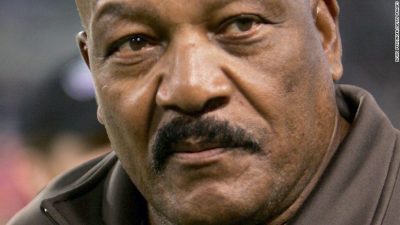
Jim Brown
• [After meeting the great running back Jim Brown] “He told me the other day, ‘You are no mystery to me. I knew you from the time we met.’ We talked a lot about athletes using the voice that sports gives them. Jim is really down on some athletes for not using theirs, and so am I. Jim says we are just like slaves who don’t use the voice because we’re too interested in making money for ourselves and taking care of ourselves chasing that all mighty dollar. Instead of a better existence for everyone…
• “I wish athletes today could have the same impact on social reform as they did when he was playing. When the likes of Ali, Malcolm X and Jim Brown all sat in the same room and discussed their views on America. Nowadays, it seems all some of us are interested in is how much money we can make. I love playing football, and I love making money, but I am starting to realize that those aren’t the only reasons God has given me so much talent. Jim and I talked until about five in the morning. We talked about everything from how the Browns lost yesterday to prison riots. It was rewarding for me to be able to chat with one of the only people I truly admire in this world.”
—O’Shaughnessy’s, Autumn 2004 Ricky Williams Quits Football

